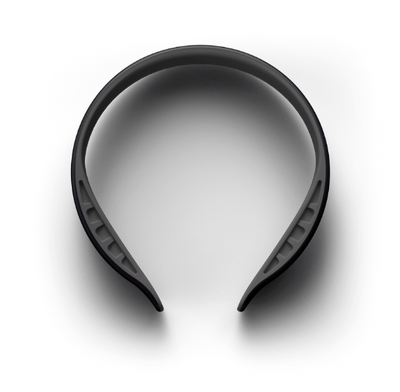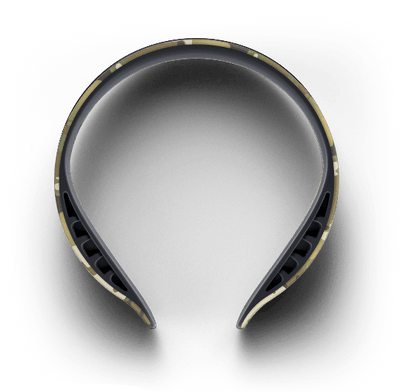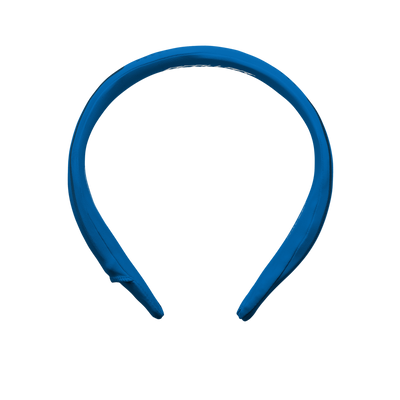As an athlete who participates in contact sports, concussions are unfortunately an all-too-common occurrence. The Center for Disease Control (CDC) classifies a concussion as a form of a Traumatic Brain Injury (TBI) that is caused by a hit to the head, or another part of the body, which causes a sudden and rapid movement of the brain inside the skull.
This sudden movement can cause the brain to slosh and stretch inside the skull, which can potentially damage brain cells [1]. Unfortunately, there is no fool-proof way for an athlete to protect themselves from concussions. Even helmets, which provide excellent protection against skull and head fractures and lacerations, are unable to prevent the brain from moving or sloshing upon impact [2].
There is also ambiguity and lack of standardization when it comes to the diagnosis of a concussion. When in doubt, it is always recommended to exercise caution to ensure health and safety are prioritized for the short and long term.
While people experience concussions differently, there are some common symptoms to be aware of:
- Headaches
- Dizziness
- Nausea
- Fatigue or drowsiness
- Sensitivity to light
- Blurry vision
- Ringing in the ears [3]
Though concussions are unique on a case-by-case basis, there are consistent steps to help get back to the activities you love as soon as possible.
- Take it Easy: The only way for your brain to recover is to give it a break, both from physical and mental exertion. You should refrain from partaking in activities that require significant mental strain and concentration [4]. Also, ensure your body is recovering by increasing your amount of sleep in the days following a concussion. Do not exercise until after you’ve been cleared to return to training by a medical professional [5].
- Follow a Return-To-Play Protocol: Typically, your doctor will set a return-to-play protocol, which will have you cautiously ramp up your physical activity over time. Although your concussion symptoms may be lessening, your brain may not be fully recovered, and your symptoms may worsen if you push to return to action too quickly.
- Avoid these activities:
- Using electronic devices. This includes looking at computer screens, televisions screens, smart phones, tablets etc. [6]
- Driving a car or operating heavy machinery. Your reaction time and judgment capabilities may be impaired. Do not drive until your doctor or a nurse practitioner clears you to resume driving. [7]
- Drinking alcohol. Drinking alcohol may enhance your concussion symptoms and prolong your recovery time. Additionally, the consumption of alcohol while recovering from a concussion may trigger depression. [8]
- Taking stimulants or drinking coffee. Stimulant products put added stress on the brain that can prevent it from continuing to recover properly. [9]
Typically, if symptoms are managed correctly using some of the tips above, most people can return to school or work and resume most regular activities within 10-14 days (not including athletic activity).
No one likes to miss out on the games or activities they love. However, returning too soon from a concussion, before your brain has had time to fully recover, can put you at-risk to be sidelined for even longer than the initial injury and risk further damage. Please consult your doctor or a medical professional for a more personalized plan or for help diagnosing a concussion.
For more information on ways to keep your brain healthy before and after a concussion or brain injury, we recommend checking out our partner, Save A Brain! You can find them on Instagram @saveabrain and on their website at https://www.saveabraininc.com.
1CDC: What is a Concussion https://www.cdc.gov/heads-up/about/?CDC_AAref_Val=https://www.cdc.gov/headsup/basics/concussion_whatis.html
2CDC: Brain Injury Safety Tips and Prevention https://www.cdc.gov/headsup/basics/concussion_prevention.html
3The Mayo Clinic Concussion, Diagnosis & Treatment https://www.mayoclinic.org/diseases-conditions/concussion/diagnosis-treatment/drc-20355600
4The Mayo Clinic Concussion, Diagnosis & Treatment https://www.mayoclinic.org/diseases-conditions/concussion/diagnosis-treatment/drc-20355600
5Concussion Ontario Do’s-and-Don’t’s when You Have A Concussion http://concussionsontario.org/wp-content/uploads/2017/04/dos-donts_3.pdf
6Concussion Ontario Do’s-and-Don’t’s when You Have A Concussion http://concussionsontario.org/wp-content/uploads/2017/04/dos-donts_3.pdf
7Concussion Ontario Do’s-and-Don’t’s when You Have A Concussion http://concussionsontario.org/wp-content/uploads/2017/04/dos-donts_3.pdf
8Mid-Atlantic Concussion Alliance Can I Drink Alcohol If I Have a Concussion https://macconcussion.com/for-adults-only-can-i-drink-alcohol-if-i-have-a-concussion/
9Concussion Ontario Do’s-and-Don’t’s when You Have A Concussion http://concussionsontario.org/wp-content/uploads/2017/04/dos-donts_3.pdf








